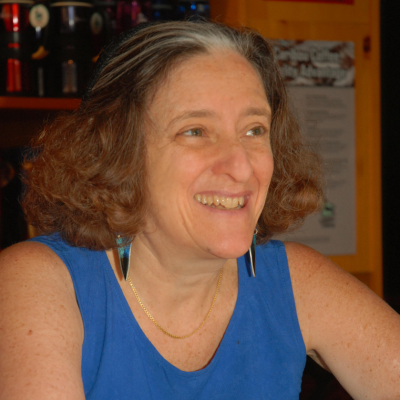On Rosh Hashanah, it is written and on Yom Kippur, it is sealed: How many will die and how many will be born? Who will live and who will die? Who at the right time and who too soon? Who will have rest and who will wander? Who will be at peace and who will be pursued? Who will be serene and who will be tormented? But repentance, prayer, and righteous deeds avert the severity of the decree.
This is one of the most beloved and troubling of Rosh Hashanah prayers. Rarely has a medieval piyyut captured the heart of the Jewish people as has Unetaneh Tokef. But such is the power of great poetry.
The prayer is beloved because it captures something majestic about the power of the Divine and the wonder and mystery of the start of the new year. The prayer captures both our hopes for a year of good health and blessing, and our fears — expressing our powerlessness and puncturing our illusion of control over our lives. So, the prayer is beloved for its truth, and resisted for the way in which it deflates our personal myths of agency.
But in these days before Rosh Hashanah, what if we took the poetry of Unetaneh Tokef to the collective level? What if it were the State of Israel that passed before the Holy One, with God remembering all her deeds, her aspirations, and her self-delusions? What if this were the Day of Judgment, a great inflection point during which the State of Israel would either be blessed or cursed?
Find more commentaries on Rosh Hashanah.
Imagine this prayer:
On Rosh Hashanah, it is written and on Yom Kippur, it is sealed. What is the fate of the State of Israel in the year to come? How many people will die and how many will take the lives of others? How many people will experience ease and how many lives of torment? How many will have their hearts opened in a relationship and how many will have bitterness and enmity hardened in their hearts? How many leaders will work for the collective good, and how many for their own personal whims and the desires of their tribe? How many people will be proud of the State of Israel, and how many will leave, despairing of the direction of the country, to live elsewhere?
Only God knows. Like the Israelites beholding blessings and curses on Har Gerizim and Har Eval, at this moment we have no way of knowing whether curses will continue to proliferate or blessings will triumph.
I would love to imagine that this, finally, with God’s help, will be a year when Israeli leaders come to their senses, a year of awakening to the tragedy of a small landlocked country in mortal conflict and hatred.
What could the leaders of Israel do to “avert the severity of the decree” — to change direction from ongoing outrage and bloodshed to a path of blessing? Unetaneh Tokef articulates the path: repentance, prayer, and tzedakah.
Find more commentaries on Israel/Palestine.
Teshuvah
Surely, there is a need for teshuvah for Israeli Jews. This teshuvah would require an opening of hearts and minds to the reality of the other (both the Palestinian other and those in different political and religious camps within Israel’s polarized society). Teshuvah would mean committing to really hear the story of the other, even when that story is painful to absorb. It would require some renunciation of privilege on the part of Israeli Jews, and inner work on the trauma reaction that keeps Jews from thinking clearly and compassionately.
Tefillah
What if the coming High Holy Days were designated by a range of religious and civic leaders as a time for deep prayer, reflection, and self-examination about the state of the country? Jews from across the society would be implored to pray, reflect, and contemplate — in whatever way was authentic for them — on the tragedy unfolding in the country, and the real risks we face. Religious Jews would pray in synagogues around Israel for peace, justice, and healing. Secular Jews would be invited to make art, poetry, and music, expressing heartfelt hopes for a better day in Israel and the occupied Palestinian territories. Children would be led by their teachers to express their dreams for their country. Such a massive collective prayer project could open hearts and spirits to the possibility of change.
Tzedakah
In the spirit of tzedakah in the High Holy Day season, what if Israeli Jews committed to give a portion of their tzedakah to Palestinian nonprofit organizations? Some Israelis could choose to donate to Palestinian groups that seek peace, justice, and transformation in both societies. Others could choose direct-service organizations that feed the hungry, educate children, or care for the ill. In either case, Israeli Jews might come to know Palestinians in need of care and community leaders who serve them.
May we live to see some redemptive acts like these in the year to come. And, on this Day of Judgment, in this time of tremendous upheaval, anger, and discouragement, may God bless the peoples of this holy land with peace, justice, and dignity for all.
Rabbi Amy Eilberg serves as a spiritual director, peace and justice educator, and teacher of Mussar. Active in anti-racism work, she serves as Chair of the Racial Justice Subcommittee of the Conservative Movement’s Social Justice Commission and as Chair of Congregation Etz Chayim’s Anti-Racism Impact Team.


